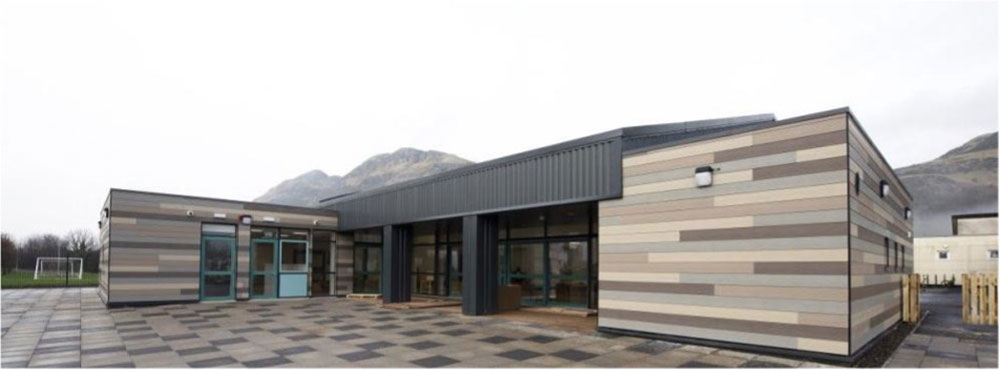In January 2020, a new purpose-built early learning and childcare (ELC) setting opened in Clackmannanshire. Sharing a site with a local primary school, the ELC is able to provide space for 107 children - 89 children aged from 3–5-years-old and 18 two-year-olds - and replaced the previous nursery class.
 From August 2021, all three-and four-year-olds and eligible two-year-olds in Scotland have the statutory entitlement to 1140 hours a year of funded ELC.
From August 2021, all three-and four-year-olds and eligible two-year-olds in Scotland have the statutory entitlement to 1140 hours a year of funded ELC.
In April 2021, over 6,000 eligible two-year olds, who are most likely to benefit from early ELC opportunities, were accessing high quality funded ELC.
Evidence has shown that high-quality early years provision can improve lifelong outcomes and shows that children growing up in more disadvantaged circumstances benefit particularly from high quality ELC.
The Scottish Government granted local authorities a discretionary power to provide ELC beyond statutory eligibility in order to support families to meet local priorities. This has allowed the staff in local ELC setting's to provide specific support to the children and families who need it most.
The Head of this new ELC setting, has shared her experience of supporting one eligible two-year-old- who, due to a change in circumstances at home, was placed into the care of their paternal grandparents at around 18 months old, and their family.
The family are extremely appreciative of the support we have been able to offer; the extra day has been such as an asset to the grandparents, who have done a remarkable job but know additional support is always available to them if it is required.
They were first introduced to the child and their mum at a different setting that offered a creche like facility for the THRIVE project. The child arrived at these sessions full of energy but with very few skills. During these sessions, children were learning to play and socialise, sitting at the table for snack and lunch.
The pair were re-introduced when the child started as an eligible two-year-old at the ELC in January 2020. At that time, they were the only two-year-old in the open planned setting. However, unlike before, they were now a very capable toddler. They were able to play, concentrate and had good social skills. The child’s grandparents had spent a lot of time preparing them for nursery by encouraging them to help with baking, gardening and other activities at home. These dedicated efforts benefited the child significantly, and other than their petite size, was no different developmentally to any of the other children in the nursery.
When weekly contact with their mum stopped, the ELC team recognised that the child and their family would benefit from additional nursery support and committed to provide the current offer of 1140 term time hours all year round. The additional hours provided much needed respite for the grandparents and provided a steady routine for the child. Dad is also now able to pick the child up from the ELC unsupervised which is a great source of excitement for the child, who enjoys telling their peers and staff about cooking dinner and reading stories with dad.
We want to thank the nursery for all the help and support they have given our family since we have been here. They have been amazing!
The ELC now has a mix of funded and non-funded two-year-old places. Educators were able to carry out a small study and plot the development milestones of each group and compare the results. This showed that, without doubt, the child is on track with numeracy and literacy. They enjoy writing stories and can verbally share these with their educator confidentially.
As a team, we have worked hard to identify what is developmentally appropriate for our two-year-olds, what nurturing spaces they need and in doing so, have developed a clear vision exclusively for our two-year-olds.
The ELC created a nurture focused area for two-year-old children coming into the setting. The dedicated area has soft lighting and a heuristic treasure basket type play focus. It is a small space that supports the transition and offers quiet time to help the young children build relationships, whilst still being able to see - and interact with, the entire nursery.